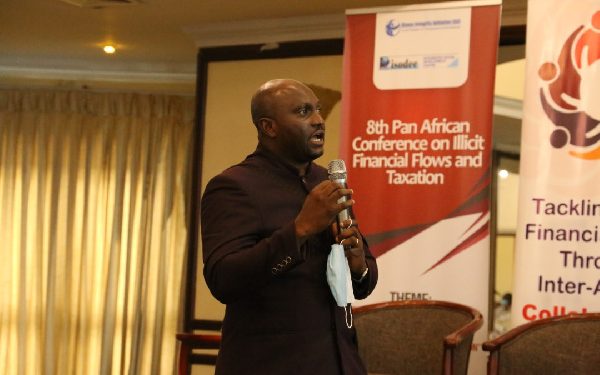The Executive Director, Revenue Mobilisation Africa, has asserted that the completion of Ghana’s debt restructuring programme with its official creditors is not something that the government should be joyous about.
Mr. Geoffrey Kabutey Ocansey believes the government has no business celebrating this given that the process has resulted in significant ‘haircuts’ for bondholders.
He said bondholders, particularly those on retirement and those preparing to retire, had faith in the system and invested with the hope of reaping from their investments after they retire from active work.
However, they were forced to have haircuts, a situation he lamented as unfortunate.
He asserted the decision by the government to include the investments of such individuals in the debt restructuring programme had had negative consequences for their livelihoods and those of their families.
Under the government’s DDEP, domestic bondholders were asked to exchange their instruments for new ones.
Existing domestic bonds as of December 1, 2022, were exchanged for a set of four new bonds maturing in 2027, 2029, 2032, and 2037.
The annual coupon on all of these new bonds was set at 0 percent in 2023, 5 percent in 2024, and 10 percent from 2025 until maturity.
The government also embarked on a debt restructuring with its external creditors.
Finance Minister Dr. Mohammed Amin Adam has announced that the process has concluded.
The Minister, who is also the Member of Parliament for Karaga, disclosed that the government has successfully restructured its debt of 5.1 billion dollars with these creditors, in addition to concluding the restructuring of 13.1 billion dollars with Eurobond holders.
He said the government negotiated a good deal for Ghana, and that is $8 billion.
But reacting to this in an interview on Frontline on Rainbow Radio 87.5FM, the economist said, Why are you jubilating? Are you happy that you’ve done this when some people have lost their investments? Is that why you are happy? You failed to manage the financial sector well and collapsed several banks. Let me take a step back and remind you of how the Bank of Ghana collapsed several banks. It advised the government and supervised the collapse of some banks. They did this because these banks breached guidelines. But the central bank is breaching the same principles that the collapsed banks were accused of.
But let’s fast-forward the discussion. If you think you have the right to jubilate for concluding your negotiations, which has caused people to lose money, then it is embarrassing for us as a country. I am one of the bondholders, and so if, in my pain, you sing on the rhythm of joy, what are you doing? You caused this mess, and I lost money, and yet you are jubilating after concluding the debt restructuring. There are some bondholders who are yet to receive their investments.”
He was, however, quick to add that despite all the negatives that have characterised the process, it is also important for us to appreciate the efforts put in by the government in concluding the restructuring programme.
“We also have to acknowledge that without our efforts, we would not have managed to convince our external creditors to restructure our debts. The bottom line is that we should not get to this point again.”










Discussion about this post